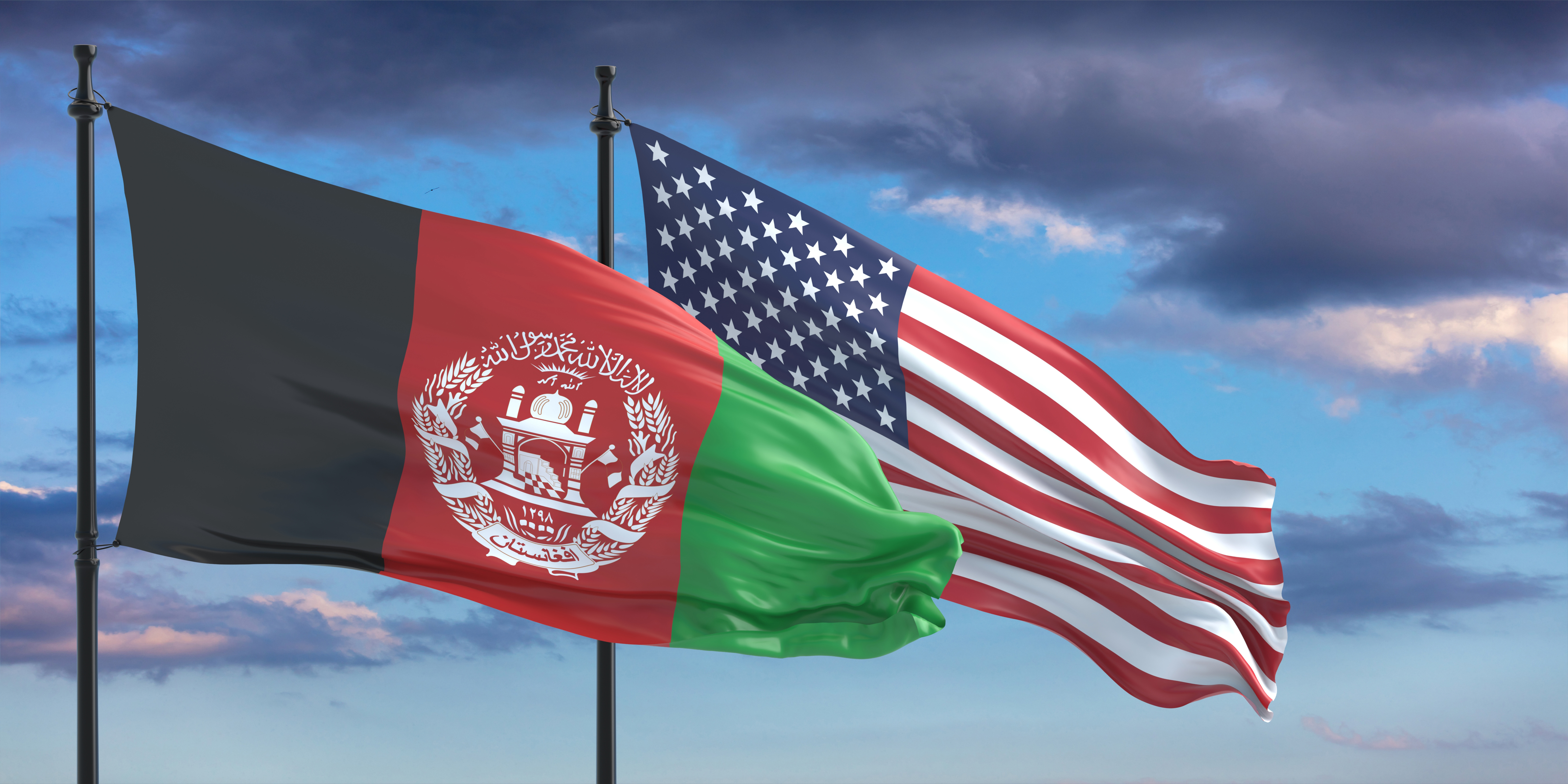- #Afghanistan
- #Deterrence

► Forward basing and deployments of American forces remain robust everywhere except Afghanistan at present, for the most part. However, I do have some concerns about Taiwan, where America’s commitment is shaky, China’s power is greater than before, and Beijing’s ambitions remain considerable.
► Deterrence can fail when rhetorical commitments are not backed up by real military power, formal alliance commitments, and demonstrated resolve.
► What is not essential, for maintaining deterrence in key theaters, is sustaining some vague notion of airtight general global credibility across all interests and regions.
In the wake of the U.S. and NATO exit from Afghanistan, a mistaken policy carried out too fast, many observers are asking if the United States and allies are now also at risk of defeat in places such as East Asia. I think the answer is mostly no. After all, President Donald Trump spent four years deprecating allies and alliances, yet no major aggression took place against American security partners in that time period. Forward basing and deployments of American forces remain robust everywhere except Afghanistan at present, for the most part. However, I do have some concerns about Taiwan, where America’s commitment is shaky, China’s power is greater than before, and Beijing’s ambitions remain considerable.
But first, some historical perspective. Deterrence can fail when rhetorical commitments are not backed up by real military power, formal alliance commitments, and demonstrated resolve. For example, the Berlin crises of the early Cold War years occurred when Soviet leaders likely doubted America’s will to respond—with the Kremlin also safe in the knowledge that it had local conventional superiority, and thus that the United States lacked the capability to prevent the construction of the wall absent major preparation or escalation. The Soviet suppression of the 1956 Hungarian uprising occurred even further from the locations of any major American military forces. Kim Il-Sung and Saddam Hussein doubted America’s will to respond to their aggressions against South Korea and Kuwait in 1950 and 1990 respectively, after unfortunate comments by Secretary of State Dean Acheson and U.S. Ambassador to Iraq April Glaspie, among others (indeed, it is difficult to classify these cases as deterrence failure, since the United States had no formal commitments to the security of these countries and signaled that it was not interested in defending them). The Soviet Union had no reason to think the United States would consider military intervention in opposition to its 1979 invasion of Afghanistan. More recently, Russia's forays into Georgia, Ukraine and Syria over the last 11 years also occurred when Moscow doubted Washington’s will to respond—there were no U.S. alliance commitments and no nearby American combat forces.
Former Secretary of Defense Bob Gates was fond of saying that the United States has a perfect record in modern times of predicting when and where future outbreaks of war will occur—we always get it wrong. That is another way of saying we do not always successfully deter. There is considerable truth to that statement. But the obverse is also true—we have a nearly perfect record of preventing further large-scale aggression in places where we really put our mind, national will, resources, and forward-deployed military forces to the task. When we can predict accurately the possibility of a future war, the United States would appear to be fairly good at preventing it. When we are clear about our interests, commitments, and capabilities, for example in Japan, western Europe, and later Korea in the early postwar years, deterrence has generally worked—or, to be more precise (since we cannot know the counterfactual), deterrence has not failed in these places. Countries will usually not risk war against the United States when they see that Washington is resolute—and especially when it has permanently stationed some of the world’s best military forces in places where they would quickly be implicated in most possible conflicts. President Donald Trump inadvertently conducted a “stress test” of sorts on the strength of U.S. deterrence commitments, suggesting especially in the first months of 2017 that his willingness to defend NATO and east Asian allies was very much conditional, at best. Yet no one attacked U.S. allies in this period and we have no evidence that any adversaries even seriously considered doing so. The fact that Trump’s musings about the questionable value of alliances did not lead to any redeployments of American combat forces or abrogations of treaties is probably a major part of the reason why.
None of this means that deterrence is easy, of course. It requires serious will and capability. The latter involves retaining by far the best armed forces in the world. And as for the former, for a country that has been waging multiple military campaigns during virtually all of the 21st century, and that has been, in Bob Kagan’s memorable phrase, a “dangerous nation” since its inception, demonstrating a will to fight in defense of core allies is probably a less brittle commodity than American strategists sometimes tend to think.
This sense of U.S. readiness to fight has not always been equally robust. Osama bin Laden said the following to ABC News correspondent John Miller back in 1998: “We have seen in the last decade the decline of the American Government and the weakness of the American soldier who is ready to wage cold wars and unprepared to fight long wars. This was proven in Beirut when the Marines fled after two explosions. It also proves they can run in less than 24 hours, and this was also repeated in Somalia….After a few blows, they ran in defeat and America forgot about all the hoopla and media propaganda. . . about being the world leader, and the leader of the new world order.” But bin Laden himself found out the hard way the willingness of the United States to defend itself against terrorism once a certain threshold of American casualties was crossed. Other would-be adversaries likely took note. The willingness of the United States to risk war in defense of core interests is probably not doubted by most potential adversaries and aggressors around the world today.
There is more good news about deterrence, as well. The United States generally need not fight just to protect its reputation for toughness or resoluteness, as scholars including Dartmouth Professor Daryl Press and University of Washington Professor Jonathan Mercer have persuasively argued by examining cases like the Berlin and Cuban missile crises. What matters most for creating credibility in the minds of adversaries is deployable power, combined with a clear commitment beyond the merely rhetorical to the country or interest at issue. In today’s world, when dealing with nuclear-armed nemeses, that U.S. military power probably requires conventional forces backed up by a nuclear deterrent.
What is not essential, for maintaining deterrence in key theaters, is sustaining some vague notion of airtight general global credibility across all interests and regions. This is not an argument to ignore humanitarian horrors in Syria, or shut our eyes to Vladimir Putin’s transgressions in Ukraine, or forget the plight of Venezuelans and the Rohinga in Myanmar and those nations in central and Sahel Africa so victimized by civil war today. However, would-be aggressors are unlikely to doubt America’s commitment to key allies just because the United States may not be fully committed to a crisis of secondary strategic importance elsewhere. Kim Jong Un would not, and did not, see a window of opportunity to attack South Korea just because Barack Obama failed somehow to uphold a “red line” over chemical weapons in Syria in 2013, for example. The United States is fallible enough that we know it will make numerous mistakes in addressing crises or conflicts of secondary or tertiary importance to the country. Fortunately, deterring threats to top-tier U.S. national security interests is unlikely to suffer as a result, especially when forward-deployed American combat forces are in position.
But as noted, I do worry about Taiwan, especially given China’s strong interests there, combined with the uncertain American commitment (we broke off diplomatic relations and treaty obligations four decades ago, of course). Some are calling for the United States to end its policy of strategic ambiguity and declare that it would, with treaty-like dependability, defend Taiwan militarily in response to any Chinese attack. I fear that a change of policy could do more harm than good, provoking China — and hardly guaranteeing a straightforward military win if we did fight, given the balance of power now so close to China’s shores.
However, it would be a good time to underscore to Beijing that, if China attacked Taiwan, some type of very strong American and allied response would be inevitable, whatever the proximate cause of the conflict. In particular, the economic relationships could never again be the same, and in the event of a serious conflict, we would at a minimum “decouple” comprehensively and definitively from our trade and investment relationships with China as fast as that proved possible. Military force would remain one potential tool for us to employ, but we would not be limited to that option. A discussion along these lines, ultimately formalized in the Biden administration’s national security strategy when that is completed, could help to shore up our deterrent and credibly answer questions about the president’s resoluteness.
The United States has never had a perfect foreign policy record, and has often invited questioning of its broader power and commitments. This is now another such time. Yet history suggests that there are ways for America and allies to address the situation effectively and safely, despite the sadness and tragedy of what has happened in Afghanistan.
Michael O'Hanlon is a senior fellow, and director of research, in Foreign Policy at the Brookings Institution, where he specializes in U.S. defense strategy, the use of military force, and American national security policy. He co-directs the Center for Security, Strategy, and Technology; the Defense Industrial Base working group; and the Africa Security Initiative within the Foreign Policy program, as well. He is an adjunct professor at Columbia and Georgetown universities, a professional lecturer at George Washington University, and a member of the International Institute for Strategic Studies. O’Hanlon was also a member of the external advisory board at the Central Intelligence Agency from 2011-12.

